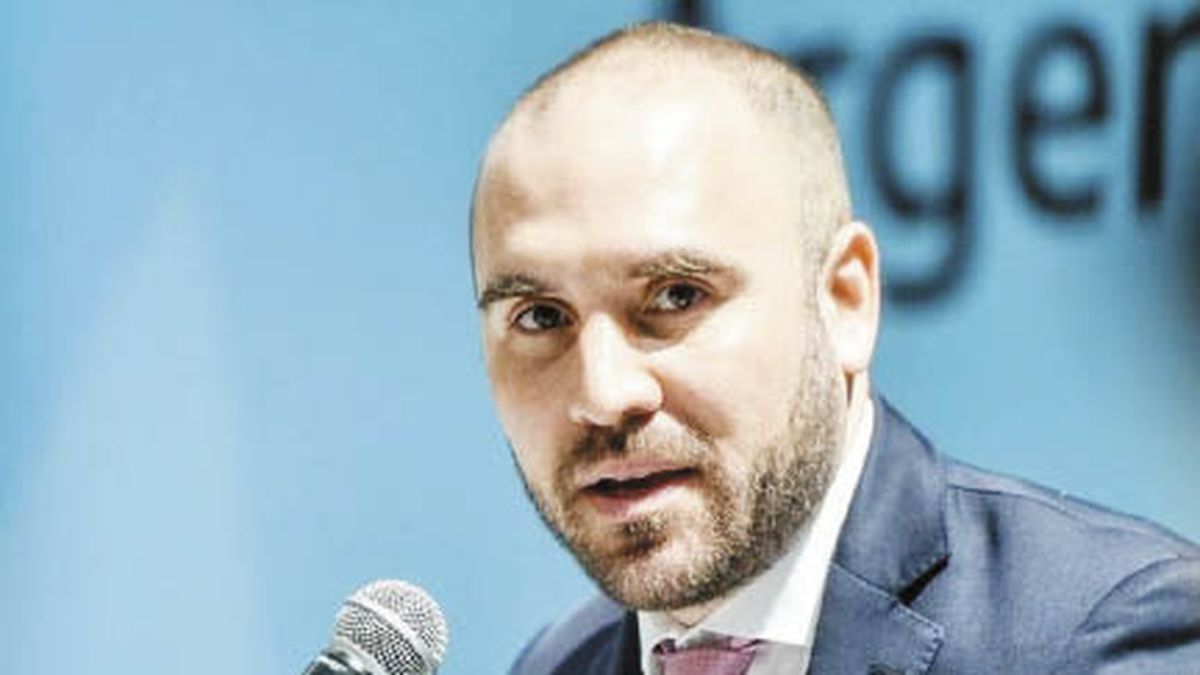As anticipated yesterday from this medium, there will be no pension reform or changes in labor legislation.
After a day of deliberations, the main government officials continued in the official offices during the early hours. Late on Thursday, the Economy Minister, Martin Guzman, met with President Alberto Fernández at Casa Rosada and presented him with details of the progress made to date on the technical level. With this information, the Government decided that the payment of the nearly US$730 million that expires today would be made based on the imminence or not of an understanding.
When faced with a consultation from Ámbito, sources close to the Argentine negotiating front indicated that an agreement had been reached, although many details still remained to be outlined. Guzmán, in turn, posted a photo on Instagram with Sergio Chodos (representative on the agency’s board) in his office, accompanied by the phrase “we keep working.”
https://graph.facebook.com/v8.0/instagram_oembed?url=https%3A%2F%2Fwww.instagram.com%2Fp%2FCZQLgNcOtCT%2F%3Futm_medium%3Dcopy_link&access_token=EAAGZAH4sEtVABAPMgKP7WlAsm5lBTCrpHtYe5owLiSev4slZBt1gRYWw5fY96vBr1KxcZCuyxWvf2pE6oB3eWBcmbvk955LYLjDhHZBcBCaKhOQ12O96vFMPPubXlZAyIYKZAEZCdT8ldMF3DCQ2l7NZAxP8YjBZAIK60FtzOgvldaQZDZD
At the same time, official sources revealed that progress had been made in the countless exchanges carried out yesterday between Buenos Aires and Washington. This morning the IMF would make an announcement about the negotiation.
Details
The key number until yesterday was 2026. It is the year in which the Government wanted to commit to reaching a zero deficit. The last details of what was proposed by the Casa Rosada were: a deficit of 2.5% of GDP for 2022 and, from there, a sequence of 2% for 2023, 1% for 2024, 0.5% for 2025 and just a zero deficit in 2026.
The most important data was not the divergence with respect to the year and period in which the IMF is asking the country to reach a zero deficit. The most relevant thing was the size of the gradual adjustment requested by the Fund. The Luis Cubeddu-Julie Kozack tandem seemed to differ quite a bit from Guzmán’s proposal.
For example, he demanded a more important cut for this year, to reach the 2 deficit points: that is, he asked for an additional 0.5 percentage point cut, which would require greater sacrifices. By 2023, the IMF requested that the deficit be the equivalent of 1.4% of GDP. Starting in 2024, it called for a 0.9 point cut.
As it was told, The Argentine government wanted a cut of 0.5 percentage points between 2022 and 2023 that affects the availability of resources for the remainder of the mandate as little as possible; Instead, it offered a deficit of 1 percentage point of output in 2024 and then adopted the same previous sequence of an annual cut of half a percentage point.
It is clear that Alberto Fernández wants to clear the remainder of his mandate from fiscal demands by the IMF. In any case, that would imply a gradual cut, softer than the abrupt one of the IMF. On the other hand, the impulse of the electoral result would be “taken advantage of” so that, in 2024, the elected government can advance with the cuts in its first year.
Meanwhile, the payment that must be made today for US$731 million should be confirmed by the Government during the morning. According to what had transpired, this disbursement would only be made if, at best, the Government managed to get the IMF to come as close as possible to Guzmán’s proposal or, in any case, if the Government managed to make enough progress to open a new phase of the negotiation with some guarantees to the credit.
That is to say that the confirmation of the payment depended on a subtle perception: if the entire Government considered that the negotiation had borne some fruit, with the commitment to continue the dialogue and respect what was agreed up to that point. It is clear that not only the Casa Rosada and the Palacio de Hacienda had to corroborate this assessment of real progress -many times subjective- based on the aversion to the negotiating rupture.
It is known that the President has been in favor in recent hours of shielding the negotiation and clearing the stage of any pessimistic statement, unlike the Vice President who, from Honduras, charged hard against multilateral organizations.
At least two government sources participating in the talks with the IMF indicated, at the beginning of yesterday’s session, that “progress” had been achieved, which referred to the possibility that Argentina maintain its autonomy to define its fiscal policy in the next two years. It would then be an Extended Facilities agreement without the commitment to structural reforms in the short term.
Source From: Ambito
David William is a talented author who has made a name for himself in the world of writing. He is a professional author who writes on a wide range of topics, from general interest to opinion news. David is currently working as a writer at 24 hours worlds where he brings his unique perspective and in-depth research to his articles, making them both informative and engaging.




